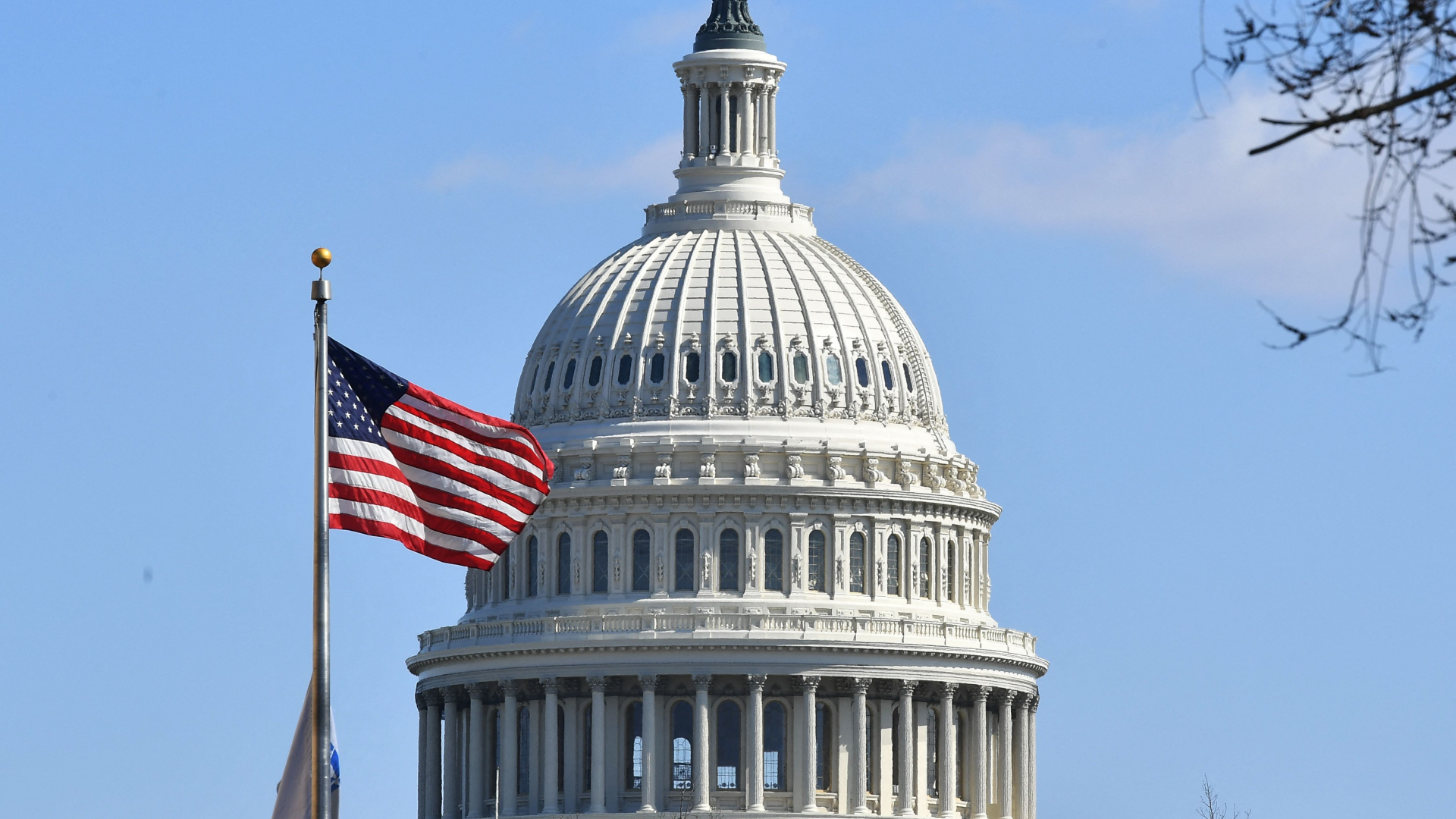The 2022 Midterm Elections: What to Know Ahead of Election Day
Consider this your guide to key races, important dates, and more.


In the weeks leading up to and on November 8, 2022, people across the country will vote in the 2022 midterm elections for the politicians they want to represent them at the federal, state, and local levels (who’s on your ballot will vary depending on the state and district you live in). This includes U.S. representatives and senators, governors, secretary of states, attorney generals, city council people, and more—all of whom have a profound impact on our lives.
The open Congressional seats are a primary focus for the Biden administration this November, as who controls the U.S. House of Representatives and U.S. Senate will influence President Biden’s agenda—and, ultimately, his success—for the second half of his term. However, many political organizers and activists will argue that voters’ energy should be equally, if not more, focused on who they’re voting for at the state and local level.
State legislatures, for example, have the power to ban abortion (and potentially restrict access to contraception), which we’ve already seen in conservative states like Arizona, Kentucky, and Mississippi following the Supreme Court’s decision to overturn Roe v. Wade in June. It’s also important to pay attention to secretary of states—27 of whom will be up for election during this election cycle—who are responsible for overseeing free and fair elections, as well as city council members who determine the budget for local schools and police departments, amongst other responsibilities.
With so much at stake at all levels of government across the country, it’s important to educate yourself and make a plan to vote in the 2022 midterm elections. Ahead, everything you need to know about the midterms, from the projected fate of Congress to key races to pay attention to.
Congress 101
All of the 435 House seats and 35 out of 100 Senate seats are up for election this November. Redistricting, as well as the Supreme Court’s decision to overturn Roe v. Wade, have shaken up predictions about who will control the House and Senate come November. Before Roe was overturned, pundits strongly predicted Republicans would take control of the House. Now, they’re not so sure.
Currently, there are 221 Democrats and 212 Republicans in the House (plus two vacancies following the death of Rep. Jackie Walorski and the resignation of Rep. Charlie Crist amid his run for Florida governor). To retain control of the House, Democrats have to keep 218 seats. Republicans are generally favored to keep most of the seats they currently occupy, however there are a wide range of scenarios that could play out.
Meanwhile, in the Senate, all Republicans need to do is flip one seat to gain control of the chamber should all other occupied seats be held by the party. Fourteen Senate seats held by Democrats and 21 held by Republicans are up for grabs. Per The Hill, the Senate seats that are most likely to flip in 2022 for both Republicans and Democrats are in Pennsylvania, Nevada, Georgia, Wisconsin, Ohio, North Carolina, and Arizona. FiveThirtyEight laid out its predictions for the Senate, noting that Democrats are slightly favored to win the Senate. Though, again, anything is possible. Vox laid out three possible Congressional outcomes of the midterms— which includes Republicans controlling Congress, a divided Congress, and Democrats keeping control of Congress—and what each would mean for federal policy.
Get exclusive access to fashion and beauty trends, hot-off-the-press celebrity news, and more.
What's at Stake
From abortion rights to gun policy to the environment to voting rights and democracy, there are a multitude of issues at stake in the 2022 midterm elections. If you're curious as to where Democrats and Republicans stand on the issues, this piece will give you a general overview of party policies and the consequences of voter apathy.
Key Races to Pay Attention To
Women continue to play an important role in U.S. elections, both as candidates and voters, on both sides of the aisle. According to the Center for American Women and Politics, a record number of women are nominees for governor and state legislatures this fall, though we won’t see the same records in the U.S. House and Senate like we did in the 2018 midterm elections. (Vote Run Lead launched a data visualization tool that shows the status of women's representation in state legislatures across the country.) What everyone—but women especially—will need to pay attention to, no matter which party they belong to, are the election deniers on the ballot—some of whom are women themselves, like Arkansas gubernatorial nominee Sarah Huckabee Sanders and Rep. Elise Stefanik (NY-21) who’s up for reelection.
“Something we're keeping our eye on and has big implications for women are all these election deniers. In at least 27 states there's an election denier on the ballot,” explains Erin Vilardi, founder and CEO of Vote Run Lead. “Election-denying and white supremacy and the patriarchy and the rights that women have gained in our democracy are deeply connected.”
You’ve likely already seen the headlines about highly-anticipated races like the Texas governorship and the Pennsylvania Senate seat, amongst many others, that have been classified as some of the key races to watch during the 2022 midterms. That said, Marie Claire wanted to get a closer look specifically at the women who could break barriers at the state and local level this election cycle who may not receive as many national headlines, so we asked Vote Run Lead and Run for Something* to share some of the key races women and nonbinary candidates are running in that they’ve been keeping an eye on, below.
Although the list is primarily filled with Democrats, you can also view this full list of Republican women running for office in the 2022 midterms.
State Races
Election: Arizona State House, District 4
Candidate: Laura Terech (D)
Election: Arizona State House, District 24
Candidate: Analise Ortiz (D)
Election: California State Senate, District 20
Candidate: Caroline Menjivar (D)
Election: Colorado State House, District 29
Candidate: Lindsey Daugherty (D)
Election: Florida State Senate, District 18
Candidate: Eunic Ortiz (D)
Election: Florida State House, District 38
Candidate: Sarah Henry (D)
Election: Georgia Agriculture Commissioner
Candidate: Nakita Hemingway (D)
Election: Georgia Secretary of State
Candidate: Bee Nguyen (D)
Election: Georgia State House, District 97
Candidate: Ruwa Romman (D)
Election: Georgia State Senate, District 4
Candidate: Nabilah Islam (D)
Election: Illinois State House, District 51
Candidate: Nabeela Syed (D)
Election: Iowa State House, District 40
Candidate: MacKenzie Bills (D)
Election: Kentucky State House, District 33
Candidate: Kate Turner (D)
Election: Michigan State House, District 27
Candidate: Jaime Churches (D)
Election: Michigan State Senate, District 8
Candidate: Mallory McMorrow (D)
Election: New Hampshire Executive Council, District 5
Candidate: Shoshanna Kelly (D)
Election: New York State Senate, District 52
Candidate: Lea Webb (D)
Election: Pennsylvania State Senate, District 38
Candidate: Lindsey Williams (D)
Election: South Carolina State House, District 5
Candidate: Heather Bauer (D)
Election: Texas State House, District 121
Candidate: Becca Moyer DeFelice (D)
Local Races
Election: DeKalb County Clerk
Candidate: Linh Nguyen (D)
Election: Harris County Judge
Candidate: Lina Hidalgo (D)
Election: Los Angeles County Supervisor
Candidate: Lindsey Horvath (D)
*The candidates listed above were shared by Vote Run Lead and Run for Something. They do not necessarily reflect endorsements from both organizations, nor does Marie Claire endorse these candidates.
How to Register to Vote
Even if you believe you’re already registered to vote, voter suppression laws are currently being enacted across the country, which disproportionately affect people of color, so it’s important to make sure your registration is up-to-date and you’re ready to provide any additional materials needed leading up to or on Election Day.
There are a number of ways to register to vote, but the easiest way would be to head to RocktheVote.org to register, check your registration status, request an absentee ballot (if necessary), and receive election reminders. You can find general voter and Election Day registration deadlines on Vote.org by typing in your state. This Washington Post article notes deadlines specifically for the 2022 midterm elections.
You can also generate a sample ballot on Ballotpedia, where you’ll be able to see the candidates on your ballot as well as ballot measures that you can research before you head to the polls or vote by mail. After you've completed the above, encourage others to do the same and remind them that every election is consequential.
How to Become a Poll Worker
COVID-19 caused a poll worker shortage across the country during the 2020 election, which resulted in over 700,000 people becoming poll workers to help ensure safe, free, and fair elections. Today, there's still a great need for poll workers. If you're interested in becoming a poll worker and making a difference in your community during the 2022 midterm elections, head to PowerThePolls.org. Poll workers are trained and paid, though specific requirements for participation vary by jurisdiction.
How Long Will It Take to Receive Final Election Results?
This will vary by state. States where voting is primarily conducted by mail, like California, Colorado, and Washington, typically take longer to count ballots, especially if they don't start counting until Election Day. In the 2020 election, vote-by-mail was a popular alternative to voting in person to mitigate the spread of COVID-19. Right now, it's unclear whether we'll see a similar vote-by-mail trend in the 2022 midterm elections, though it is clear that more people are voting early in this year's midterm elections than previous ones. You can view early voting numbers across the country and follow live election updates here.
Rachel Epstein is a writer, editor, and content strategist based in New York City. Most recently, she was the Managing Editor at Coveteur, where she oversaw the site’s day-to-day editorial operations. Previously, she was an editor at Marie Claire, where she wrote and edited culture, politics, and lifestyle stories ranging from op-eds to profiles to ambitious packages. She also launched and managed the site’s virtual book club, #ReadWithMC. Offline, she’s likely watching a Heat game or finding a new coffee shop.
